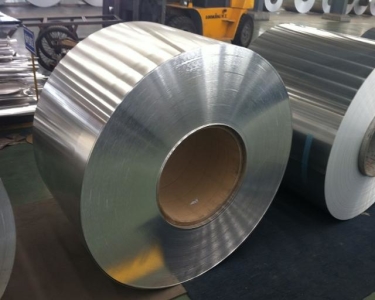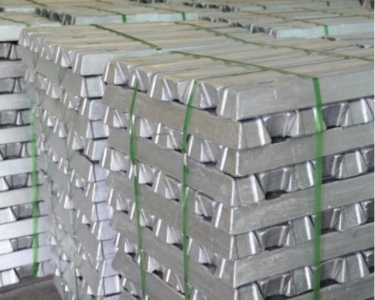Couldn't find the product you want?
Fill out this form to request the product.
Export from Canada
Export Portal "Export in Canada" Department proudly showcases a myriad of products and services that are designed and made in Canada. We are your top online source for listings of Canadian products, as well as for finding and establishing business relationships with Canadian Exporters, Canadian Manufacturers, Canadian Companies and Canadian Suppliers.
Export Portal's foremost mission is to promote Canadian companies and their products on a worldwide level. It is worth mentioning that being the 10th largest exporter in the world, the country is heavily oriented in foreign trade. The primary Canadian exports include motor vehicles and parts, aircraft, industrial machinery, chemicals, plastics, fertilizers, timber, apparel, food & beverage products and many others.
From apparel to watercraft, from simple to sophisticated, Canadian companies offer the world an incredible range of quality products that are in high demand. For instance, Canadian foods, agri-foods and wines are among the best in the world. That's why the country is highly respected across the world for its multitude of fine Canadian made products.
Join Export Portal today to tackle the major world markets or to find the products made in Canada you are looking for. Our portal has solutions designed to help you succeed.
Import to Canada
Export Portal is the world's leading export/import platform, focused on the promotion of products and services in the domestic and international markets. The product and motor catalogs allow companies and simple buyers to search, buy and sell the items in any country of the world, overcoming language and trade barriers.
Canada imports mostly machinery and equipment, motor vehicles and parts, electronics, chemicals, electricity and durable consumer goods. Canada’s main imports partners are United States, European Union, China and Mexico.
If you are interested in importing goods into Canada, Export Portal makes it easy to find trusted sellers and manufacturers and their products in any category, country or region you require. Consult seller's and product reviews written by customers, to make the right purchasing decision. Search for Canadian Companies, American Manufacturers, Chinese Companies, European Suppliers, Latin America's Sellers, Australian Exporters, Africa's Distributors and many others to find the product you were looking for and import it easily and safely in Canada.
Or if you are an international importer looking for Canadian Export Companies, Export Portal can help you. Thousands of Canada's export products and import products are ready for foreign traders and buyers to search them in our classified categories. These Canada Export and Import Products are of high quality and the majority of them are unique, bearing the seal of quality "Made in Canada". Export Portal is your gate to international trade. Get the best deals online!
Aluminium section on Export Portal welcomes all sellers and buyers of aluminium to connect to each other for successful trade. Aluminium is the most widely used non-ferrous metal. Global production of aluminium in 2005 was 31.9 million tonnes. Sell aluminium and articles of aluminum on Export Portal, increase your sales by expanding your trade worldwide. Buy aluminium online on our site, find manufacturers and suppliers and get the best deals!
Aluminum is the second most abundant metallic element in the Earth's crust after silicon, yet it is a comparatively new industrial metal that has been produced in commercial quantities for just over 100 years. Measured either in quantity or value, aluminum's use exceeds that of any other metal except iron, and it is important in virtually all segments of the world economy. Some of the many uses for aluminum are in transportation (automobiles, airplanes, trucks, rail cars, marine vessels, etc.), packaging (cans, foil, etc.), construction (windows, doors, siding, etc), consumer durables (appliances, cooking utensils, etc.), electrical transmission lines, machinery, and many other applications.
Recycling of aluminum or aluminum recovery from scrap has become an important component of the aluminum industry. Sources for recycled aluminum include automobiles, windows and doors, appliances, and other products. However, it is the recycling of aluminum cans that seems to have the highest profile.
Aluminium metal is so chemically reactive that native specimens are rare and limited to extreme reducing environments. Instead, it is found combined in over 270 different minerals. The chief ore of aluminium is bauxite.
Top aluminium exporters in the world are China, Russia, Canada, United Arab Emirates, India, United States, Australia, Norway, Brazil, Bahrain.
Trade with Export Portal, boost your profits and make your business prosper!
Customs requirements of Canada
Canada Customs Contacts
Website: http://www.cbsa-asfc.gc.ca/menu-eng.html
Phone: 1-204-983-3500/ 1-506-636-5064
Canada is a country situated in North America, which extends from the Atlantic Ocean in the east to the Pacific Ocean in the west. It shares land borders with the USA, and has marine borders with France and Greenland. Canada is the world's 2nd largest country by total area. The country is a member of the Association of Southeast Asian Nations (ASEAN/ dialogue partner), Council of Europe (observer), G7, International Chamber of Commerce, International Monetary Fund, North American Free Trade Agreement (NAFTA), World Trade Organization, World Customs Organization and other international organizations.
Import tariffs
Canada applies import tariffs in correspondence with the Harmonised Commodity Description and Coding System (HS). There are Most-Favoured Nation tariffs, as well as preferential tariff rates. In order benefit from one of these particular tariff treatments, the imported products must meet certification, direct shipment conditions and country of origin markings.
Tariffs are calculated on the basis of the FOB (freight on board) value of the products in the country of export and can be ad valorem. In addition, importers will have to pay a Goods and Service Tax (GST). Duties are collected by the customs authorities at the time of importation.
Product certification and labeling
Most of the imported products do not require licenses and permits. However, some of the imported goods are subject to a quantitative import restriction, and require a permit for importation. These products include:
- agricultural products
- firearms
- textiles and clothing
- steel
Many Canadian provinces restrict the importation of alcoholic beverages.
Regarding labeling requirements it should be mentioned that Canada is officially bilingual, and as a result labeling and packaging requirements have a particular importance. Thus, the Consumer Packaging and Labelling Act requires that all labels be bilingual, written in English and French. In addition, the following details must be indicated on the label/package:
- product identity
- net quantity
- dealer's name and principal place of business.
In Quebec, labeling of food products must be in French or have a French version displayed at least as prominently as the other language.
Concerning packaging requirements, it should be noticed that a certificate of disinfection is required for straw, hay, peat, moss, or other raw packing materials of the soil. Packing materials such as used sacks, bags and canvas are prohibited.
Documents for import
Pro-forma invoice
Commercial invoice
A Canada Customs Invoice (CCI) should be used for all shipments with a freight on board (FOB) value of C$1,600 and over. Commercial invoices can be used but must include all the information required in the CCI.
For all fresh produce shipments, a Confirmation of Sale form is required by the Canadian Food Inspection Agency (CFIA) as evidence that a firm purchase agreement has been made.
Bill of lading
Manifest/Cargo Control Document
Customs Coding Form (Form B3)
The form includes the tariff classification, value for duty and the origin of the products, in addition to other information.
Certificate of origin
Packing list (optional)
Certificate of insurance
Public health requirements
Imports of animals, plants and their products (including fruit and vegetables, other foods, seeds, forest products) require health certificates. These imports are also subject to inspection upon arrival.
Fruit and vegetables, honey, meat, fish and processed foodstuffs are subject to specific regulations. Exporters must confirm with their importers that their products meet the full requirements of the Canadian legislation.
Quality standards and labeling requirements for drugs and patent medicines are prescribed.
Sources:
http://www.cbsa-asfc.gc.ca/trade-commerce/tariff-tarif/menu-eng.html
http://www.international.gc.ca/controls-controles/about-a_propos/impor/canada.aspx?lang=eng
http://canadabusiness.ca/government/regulations/regulated-business-activities/importing-regulations/

